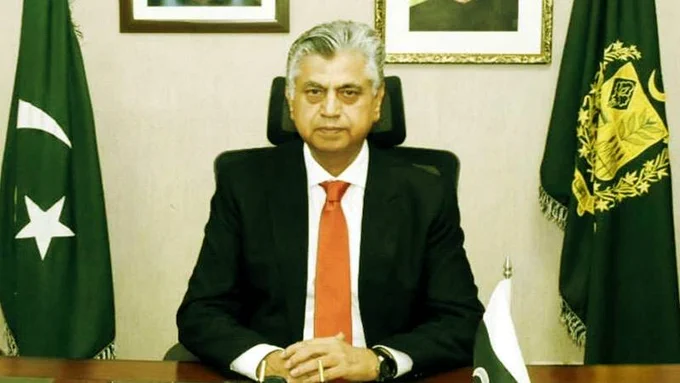Ijaz Kakakhel Islamabad
In an alarming development, it was revealed on Monday that the formula milk, also known as baby formula for infants, being sold in Pakistan is “hazardous”.
The revelation was made by Senator Samina Waqar during a discussion in the upper house of the parliament regarding the quality and safety of formula milk in Pakistan who brought the house’s attention to the fact that health professionals are involved in the marketing, and promotion of formula milk.
Speaking on the occasion, Pakistan Tehreek-e-Insaf senators Barrister Ali Zafar and Mehr Taj Roghani also echoed Waqar’s concerns with the latter stressing that the formula milk is “unsafe”.
In this regard, Senator Samina Mumtaz Zehri On Monday tabled a resolution in the Senate addressing the production and safe use of baby formula milk and related products.
Dr Mehr Taj Roghani talked about the alarming rise in diarrhea among children, attributing it to the consumption of packaged milk. She expressed concern about the powerful influence of the “canned milk mafia” and suggested that even the government might be involved in this issue.
Highlighting a critical point, Dr Mehr Taj added that artificial milk lacks any living cells, and she accused the government of complicity in the matter.
Senator Mehr Taj underlined the ineffectiveness of previous bills, stating that despite numerous attempts, no significant changes have occurred. Undeterred, she affirmed her commitment to reintroduce the bill, recognizing the urgency of the situation. Senator Dr Mehr Taj questioned the rationale behind limiting the committee to making recommendations, stressing that the gravity of the issue demands concrete action.
She further stated that a child’s health is nurtured through the mother’s milk, emphasizing the irreplaceable role of natural feeding over artificial substitutes. Dr Mehr Taj’s unwavering determination underscores the critical need for comprehensive measures to address the challenges posed by unsafe baby formula milk and related products.
Meanwhile, Minister for Parliamentary Affairs and Information, Murtaza Solangi said Pakistan currently had ample wheat stocks and concrete measures would be initiated to address any flour shortage due to supply chain problems. Responding to a motion under Rule 218 by Senator Sania Nishtar, focused on addressing gaps in the wheat supply chain that may lead to flour shortage, the minister stated that currently there was no wheat shortage in the country.
Senator Nishtar had pointed out the specific lacuna in wheat policy, citing the conversion of green bags to white bags at the retail level. She also hinted at the smuggling as a factor, contributing to wheat shortages in addition to creation of systematic artificial shortages and hoarding. The minister emphasized that there was an adequate stock of wheat in the country as public wheat stock included 39,24,367 metric tons in Punjab, 8,17,394 metric tons in Sindh, 2,15,082 metric tons in Khyber Pakhtunkhwa, and 89,354 metric tons in Balochistan. Pakistan Agricultural Storage & Services Corporation Ltd accounted for 17,18,177 metric tons, he added. Private wheat stock comprises 3,37,270 metric tons in Punjab, 93,165 metric tons in Sindh, 14,918 metric tons in Khyber Pakhtunkhwa, and 4,157 metric tons in Balochistan.
The Minister for Parliamentary Affairs said that Pakistan had over seven million (7,213,884) metric tons of wheat, with an additional imported stock of 10,33,845 metric tons, ensuring there was no shortage. He said the support price for provinces differed, being Rs 4600 in Punjab and Rs 4700 in Sindh. During discussions on the motion, Senator Dilawar Khan said that Pakistan should export wheat rather than its import and called for concessions to the agriculture sector.










